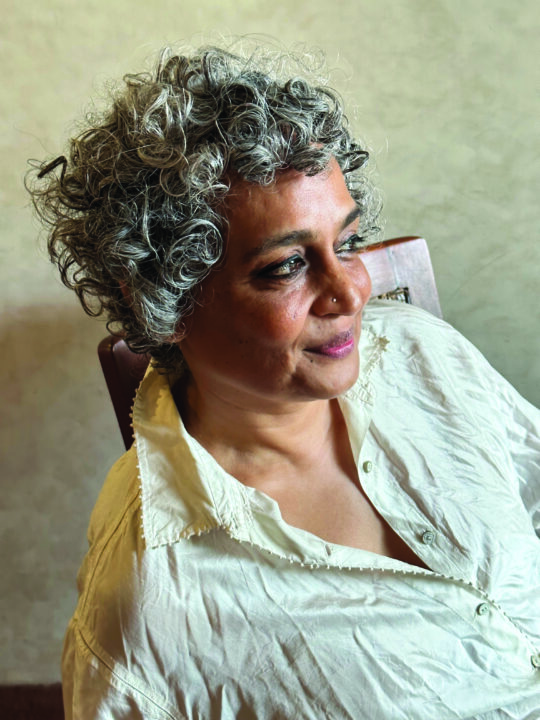Although this event has passed, you can still purchase a ticket to buy a streaming pass through September 25, 2025, at 7:30 PM (PT).
A raw and deeply moving memoir from the legendary author of The God of Small Things and The Ministry of Utmost Happiness, Mother Mary Comes to Me traces the complex relationship between Arundhati Roy and her mother, Mary, a fierce and formidable force who shaped Roy’s life both as a woman and a writer.
Tickets with “& Book” include a copy of Mother Mary Comes to Me, shipped to your door by our bookstore partner Elliott Bay Book Company.
Q&A with Shahina Piyarali.
Mother Mary Comes to Me, Arundhati Roy’s first memoir, is a soaring account, both intimate and inspirational, of how the author became the person and the writer she is, shaped by circumstance, but above all by her complex relationship to the extraordinary, singular mother she describes as “my shelter and my storm.”
“Heart-smashed” by her mother Mary’s death in September 2022 yet puzzled and “more than a little ashamed” by the intensity of her response, Roy began to write, to make sense of her feelings about the mother she ran from at age eighteen, “not because I didn’t love her, but in order to be able to continue to love her.” And so begins this astonishing, sometimes disturbing, and surprisingly funny memoir of the author’s journey from her childhood in Kerala, India, where her single mother founded a school, to the writing of her prizewinning novels and essays, through today.
With the scale, sweep, and depth of her novels, The God of Small Things and The Ministry of Utmost Happiness, and the passion, political clarity, and warmth of her essays, Mother Mary Comes to Me is an ode to freedom, a tribute to thorny love and savage grace—a memoir like no other.
Arundhati Roy is the author of The God of Small Things, which won the Booker Prize in 1997, and The Ministry of Utmost Happiness, which has been translated into more than forty languages and was longlisted for the Man Booker Prize in 2017. Roy has also published several works of nonfiction including The End of Imagination, The Doctor and the Saint, My Seditious Heart, and Azadi. In 2023, she was awarded the prestigious European Essay Prize for lifetime achievement, and in 2024 the PEN Pinter Prize for telling “urgent stories of injustice with wit and beauty.” She lives in Delhi.
Shahina Piyarali is a leader in the Seattle literary and arts community focusing her time and energy on promoting South Asian culture as an expatriate. She has lived in Seattle for over 30 years and is a book reviewer for Shelf Awareness. She serves on the National Council of Graywolf Press and the Advancement Board of University of Washington Press. She is a former Board President of Hugo House, a literary center for aspiring and established writers, and Tasveer, a local arts organization. Her philanthropic work includes serving on the founding board of the Islamic Council of USA for UNHCR.
Shahina is a barrister from Lincoln’s Inn in the U.K. and practiced as an attorney in Seattle. She earned her Juris Doctorate from the University of Washington School of Law and holds a Bachelor of Law from SOAS (the School of Oriental and African Studies) at the University of London. In addition to her literary interests, she loves to cook and is a barre class enthusiast.






